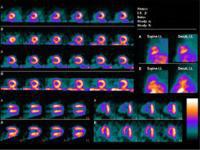
Perfusion Imaging is a comparison of blood flow to the heart at rest and stress as a physiologic result of blockage in the coronary arteries. Most often for moderate risk patients, abnormal EKG's, and after angioplasty or bypass surgery.
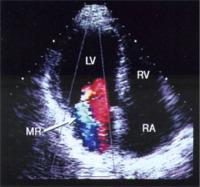
Echocardiogram is an ultrasound method to assess for acquired, structural, valvular, and congenital causes of heart disease.
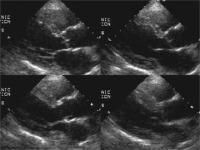
Stress echo allows for the comparison of wall motion of the heart at rest and stress as a physiologic surrogate to blockage in the coronary arteries. Most often for low to moderate risk patients and younger patients in which there may be structural and valvular causes of symptoms.
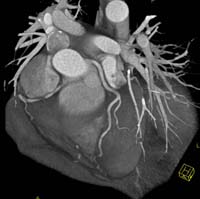
Contrast coronary angiogram is a method for assessing coronary anatomy in the outpatient setting. Most often used for indeterminate stress tests and assessment of bypass grafts. Coronary calcium plaque scoring has become the accepted method of cardiac and vascular risk stratification.
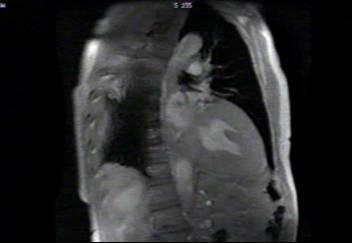
Cardiac MRI is useful for the diagnosis of structural, infiltrative, myopathic, and extracardiac masses. It is the gold standard for complex congenital heart disease.
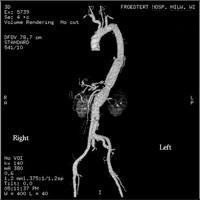
Vascular CTA and MRA for the non-invasive diagnosis of carotid, aorta, renal, mesenteric, and peripheral vascular disease has replaced invasive catheter based angiography for the definitive diagnosis and pre surgical planning.
